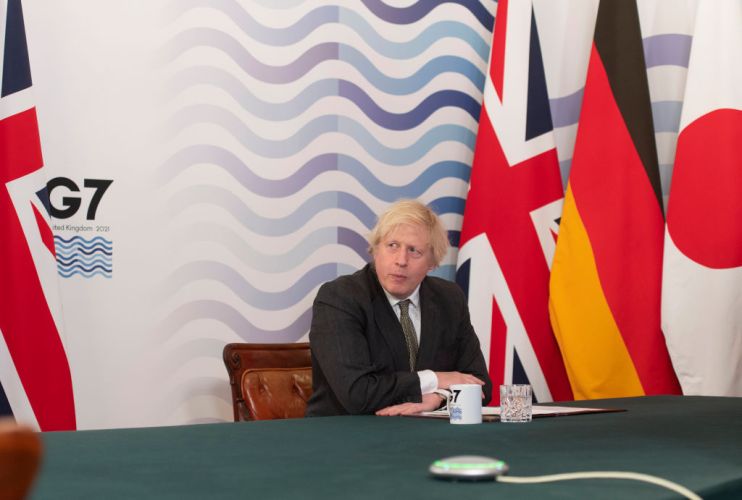PM must pull G7 back from the dusty halls of diplomatic irrelevancy to tackle Covid, China & climate change

Last Friday, Prime Minister Boris Johnson hosted the first leadership meeting of the UK’s 2021 presidency of the G7. While the western club may appear ill-suited to tackling the global crisis from the pandemic, it has always been at its best reacting to the big issues of the moment.
Indeed, the very fact that it was founded in 1975 in the aftermath of geopolitical and economic shocks when Washington had pulled out of the Gold Standard underlines that it is fit for purpose for turbulent times like today.
Back then, President Richard Nixon had resigned and there was imminent danger of currency wars. The G7 stepped up to the plate, playing a key role in the management of the most important exchange rates. It also brought Japan into the Western policy-making community. We need a similar far-sighted approach today.
The body has a proven record of delivering when needed; in the 1990s, the G7 helped convince the Russians to pull out the remnants of the Red Army from the Baltic States. This action was just one part of the lynchpin function the body played in the 1970s and 1980s helping coordinate Western strategy towards the then-Soviet Union.
It can play a significant role in coordinating the ongoing international response to the pandemic too. This group’s strong representation from European and North American states, hit hardest by the coronavirus crisis, make it all the adept at tackling the problem from a global perspective.
Top of Friday’s agenda was rejuvenating the world economy post-pandemic; coordinating a global plan for coronavirus vaccine production; China; and climate change. Plans were also discussed to mobilise and cooperate against the threat of future, emerging infectious diseases by building country capacity and establishing health security financing.
Friday’s session was only the first leadership meeting this year that will address these issues. The main leaders event in June will see Mr Johnson host the first in-person G7 summit in two years. Counterparts from Australia, South Korea and India will attend too.
On China, Biden struck an different chord from his predecessor, noting the need for western countries to unify and make investments to strengthen collective competitiveness. He sought to differentiate his response from that of the Trump era when the primary US action was unilaterally challenging China over its trade policies by imposing tariffs.
As world leaders grapple with how to have a responsible trade relationship with China, which acknowledges the human rights breaches in Xinjiang and power grabs in Hong Kong, the G7 will be crucial in forming a unified response.
After the turbulence of the Trump era, Biden’s overtures were welcome. The seven nations began putting aside recent divisions, mainly, but not exclusively, between the ex-US president and the other six leaders. Diplomatic squabbles amongst G7 leaders reached its nadir in 2018 at the Canadian-hosted summit which saw an unprecedented failure to agree an end of summit communique and remarkable undiplomatic language.
This personal animosity on display between Trump and other leaders provided political atmospherics for wider policy splits. Trump, for instance, called on the first day of that summit for Russia to be allowed to rejoin the group (as the G8), as was the case from 1997 to 2013.
Yet other G7 leaders dismissed this and instead called for a “rapid and unified” response to malign international interference, including by Moscow, such as cyber and chemical weapon attacks like those in 2017 in England.
The pandemic now provides a window for the G7 to take an important step back, and try to tap into its history of problem solving and concentrate on the big strategic questions facing the West.
If the western club can do this, it can pull itself back from the dust-covered halls of diplomatic irrelevancy. It can finally tackle the argument put forward by some developing countries that it lacks the legitimacy of the UN, or even G20, to engage on these international issues.